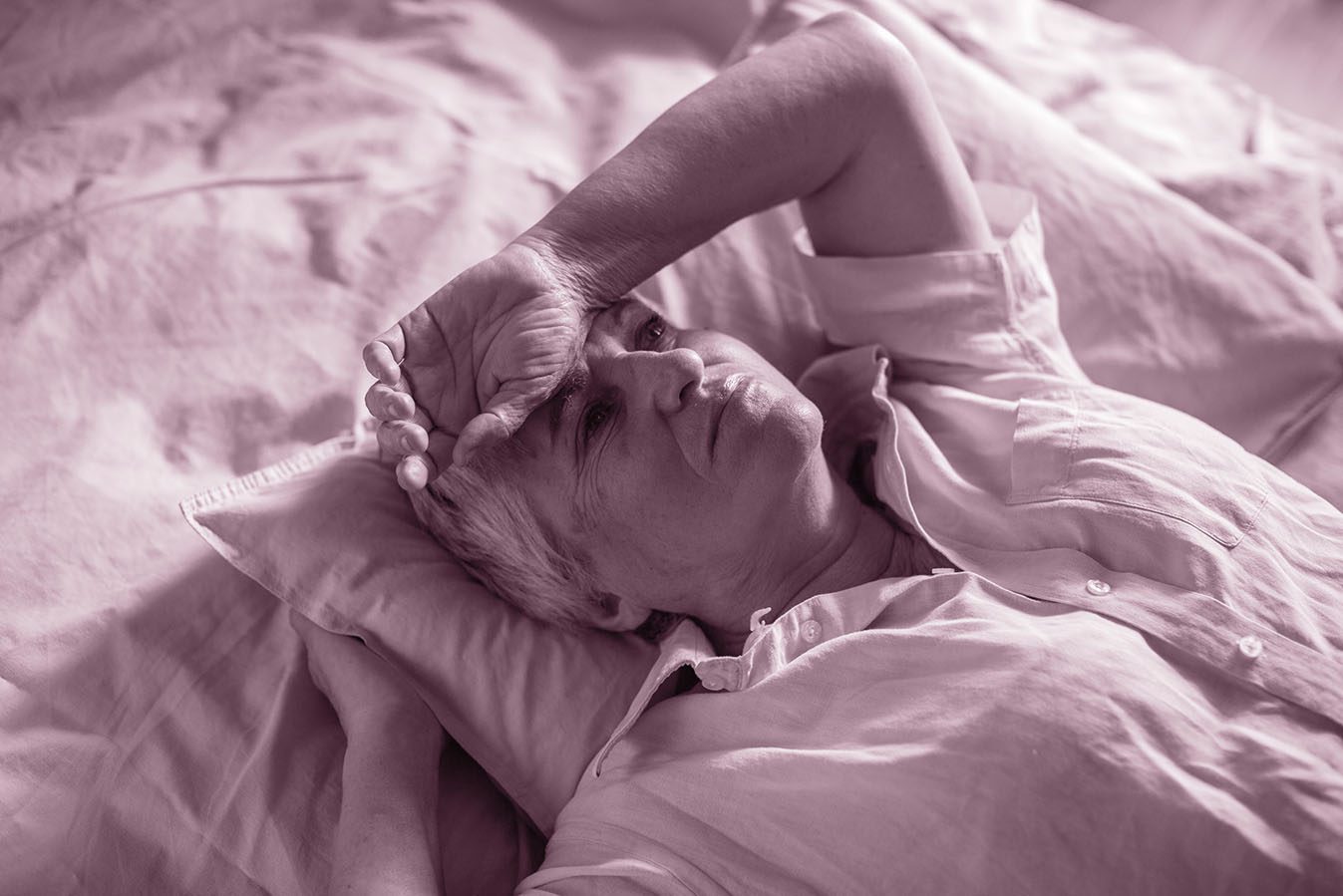
Facing breast cancer is challenging, and understanding the side effects of its treatment is crucial for patients. At Texas Breast Center, we recognize the importance of addressing concerns, including the potential onset of menopause due to cancer therapies. Our dedicated team is here to guide you through each step, providing clarity and support. For personalized advice and a thorough evaluation of your treatment options, we encourage you to schedule an appointment with Dr. Gorman at Texas Breast Center today.
Will I go into menopause as a result of my breast cancer treatment?
It is possible to enter menopause as a result of breast cancer treatment. Various treatments, like chemotherapy and hormone therapy, can trigger menopausal symptoms or actual menopause, with effects varying based on the patient’s age and health.
According to a study in The Journal of the Menopause Society, 56.0% of women reported one or more menopausal symptoms during the first 6 months after breast cancer diagnosis, regardless of their menopausal status at the time of diagnosis. The study also found that chemotherapy was positively associated with the occurrence of menopausal symptoms, particularly in premenopausal women.
The same study also reports that chemotherapy-induced menopause occurred in:
- 31% younger than 40.
- 53% aged 40-50.
- 83% aged 50+ years.
Hormone receptor-positive breast tumors often require hormonal therapies that can affect the menstrual cycle, especially in premenopausal women, leading to low estrogen levels and symptoms that mimic menopause. Chemotherapy, especially in older women, may cause a permanent end to menstruation. Drugs like tamoxifen and aromatase inhibitors, while treating breast cancer, can also induce menopausal symptoms, and contraception may still be necessary to prevent pregnancy during this time. Additionally, surgical or medically-induced ovarian suppression can lead to menopause, with the possibility of severe and sudden symptoms.
Chemotherapy works by targeting fast-dividing cells, including those in the ovaries, potentially leading to menopause. The impact of chemotherapy on menopause depends significantly on the patient’s age and the specific chemotherapy drugs and dosages used. Surgery to remove the ovaries, often considered by those at high genetic risk for breast cancer, results in immediate and permanent menopause.
Ovarian shutdown or suppression through medication can be a strategy to preserve fertility for pre-menopausal women undergoing treatment, with the potential for ovarian function to resume post-treatment. Hormonal therapy for hormone receptor-positive breast cancer, while not directly causing menopause, can result in menopausal symptoms due to its mechanism of lowering estrogen levels or blocking its effects on cancer cells.
Understanding the intricate relationship between breast cancer treatment and menopause is crucial. At Texas Breast Center, we prioritize informed discussions with our patients about these potential changes, offering guidance on managing symptoms and considering fertility preservation where applicable.
What are the symptoms of menopause I might experience after breast cancer treatment?
After breast cancer treatment at Texas Breast Center, you may experience various menopausal symptoms due to decreased sex hormone levels include physical, cognitive, and sexual symptoms. These symptoms, similar to natural menopause but often more sudden and severe, can range from hot flashes and night sweats to mood swings and cognitive challenges like memory lapses and concentration difficulties, often referred to as “brain fog.” Physical discomforts may include joint and muscle pain, potentially leading to osteoporosis, as well as headaches and changes in sexual health, such as reduced libido, vaginal dryness, and urinary issues. Women may also experience increased anxiety, perspiration, sleep disturbances, and sexual dysfunction, including dyspareunia and xeroderma (dry skin), due to the changes in the endocrine system after menopause.
The intensity and mix of signs and symptoms of menopause differ among individuals, with factors like the type of breast cancer treatment playing a significant role. Treatments like chemotherapy, hormone therapy, and ovarian suppression can lead to a range of effects, from vaginal and urinary changes to emotional and cognitive fluctuations. Managing these symptoms effectively involves a personalized approach, considering each patient’s specific needs and medical background.
At Texas Breast Center, Dr. Gorman understands the complex interplay of menopause and breast cancer treatment. Our commitment is to provide comprehensive care and support, helping you navigate these changes with tailored strategies to alleviate symptoms and improve quality of life.
What can I do to relieve symptoms of menopause after breast cancer treatment?
To alleviate menopause symptoms after breast cancer treatment, several strategies can be considered, focusing on lifestyle changes, non-hormonal medications, and complementary therapies. Maintaining a healthy weight and regular exercise can mitigate symptoms like hot flashes, while avoiding trigger foods such as spicy dishes may also provide relief. Non-hormonal medications, including certain antidepressants and gabapentin, have shown efficacy in reducing hot flashes. Complementary therapies like acupuncture and cognitive behavioral therapy offer additional support for symptom management.
Addressing vaginal dryness involves non-hormonal moisturizers and vaginal lubrication, with potential discussions about low-dose hormonal treatments or newer techniques like vaginal tissue rejuvenation. For overall bone health, especially to counteract potential osteoporosis, monitoring and possibly supplementing with vitamin D and calcium is often advised. Venlafaxine, an enzyme inhibitor, is often prescribed to manage hot flashes, which are frequent and intense perspirations commonly experienced during menopause.
It’s critical to avoid hormone replacement therapy (HRT) due to the increased risk of cancer recurrence in breast cancer survivors. Venlafaxine, an enzyme inhibitor, is often prescribed to manage hot flashes, which are frequent and intense perspirations commonly experienced during menopause. Regular communication with healthcare providers like Dr. Gorman at Texas Breast Center is essential to tailor a safe and effective breast cancer management plan for menopause symptoms post-breast cancer treatment, ensuring it aligns with the patient’s specific health history and current condition.
Menopause following breast cancer treatment can be a complex and individual experience. At Texas Breast Center, Dr. Gorman and our team are dedicated to supporting you through this transition. We provide personalized care plans to manage menopausal symptoms effectively and improve your quality of life. If you’re navigating menopause as a result of breast cancer treatment, don’t face it alone. Contact Texas Breast Center to schedule a consultation with Dr. Gorman. Together, we can find the best approach to manage your symptoms and support your overall well-being.
More FAQ’s About Menopause As A Result Of Breast Cancer Treatment
What is the likelihood of experiencing menopause after breast cancer treatment?
The likelihood varies depending on age, type of treatment, and individual health. Texas Breast Center can provide a personalized assessment based on your specific circumstances and treatment plan.
Can menopause induced by breast cancer treatment be reversed?
Induced menopause can be permanent or temporary, especially after chemotherapy. Texas Breast Center offers guidance on managing both temporary and permanent menopause post-treatment.
Are menopausal symptoms after breast cancer treatment different from natural menopause?
Symptoms can be similar, but often more severe or abrupt after treatment. Texas Breast Center helps manage these symptoms, offering tailored support and treatment options.
How does hormone therapy for breast cancer affect menopausal symptoms?
Hormone therapy can exacerbate menopausal symptoms due to estrogen level changes. Texas Breast Center provides strategies to mitigate these effects and improve comfort.
Can breast cancer treatment-induced menopause affect my sexual health?
Yes, it can lead to vaginal dryness, discomfort, and libido changes. Texas Breast Center addresses these concerns with appropriate non-hormonal treatments and counseling.
What lifestyle changes can help manage menopause symptoms after breast cancer treatment?
A healthy diet, regular exercise, and stress reduction can alleviate symptoms. Limiting alcohol intake is recommended as it can affect the frequency and intensity of menopausal symptoms. Additionally, women who are nursing should consult with their medicine provider for personalized advice. Texas Breast Center offers lifestyle advice and support to navigate these changes effectively.
Is it safe to take hormone replacement therapy (HRT) for menopause symptoms after breast cancer treatment?
HRT is generally not recommended due to the risk of cancer recurrence. Texas Breast Center explores safer alternatives to manage menopausal symptoms post-treatment.
How can I protect my bone health during menopause after breast cancer treatment?
Regular monitoring and supplements like calcium and vitamin D are crucial. Texas Breast Center provides comprehensive care for bone health during menopause.
Will my menopause symptoms after breast cancer treatment ever improve or go away?
Symptoms may lessen over time, but individual experiences vary. Texas Breast Center monitors and adjusts treatment plans to maximize symptom relief.
Can breast cancer treatments directly cause menopause, or do they just bring on symptoms?
Some treatments, especially chemotherapy and ovarian suppression, can cause actual menopause, not just symptoms. Texas Breast Center can help distinguish and manage both scenarios.
How does feminizing hormone therapy impact women with a BRCA gene mutation and hormone receptor-positive breast cancer?
At Texas Breast Center, feminizing hormone therapy is carefully considered for patients with BRCA gene mutations and hormone receptor-positive breast tumors. The therapy can influence the risk of ovarian cancer, and medical diagnosis and treatments are tailored to ensure safety and efficacy in the United States.
Source:https://journals.lww.com/menopausejournal/abstract/2009/16060/menopausal_symptoms_among_breast_cancer_patients_6.23.aspx

Valerie Gorman, MD, FACS, is a breast cancer surgeon. She is board certified by the American Board of Surgery and serves as Chief of Surgery and Medical Director of Surgical Services at Baylor Scott & White Medical Center – Waxahachie. She is the Clinical Assistant Professor of Medical Education position at the Texas A&M University College of Medicine.
- Certificate, Physician Leadership Program, Southern Methodist University, Dallas, Texas (2010)
- M.D., University of Texas Southwestern Medical School at Dallas, Texas (June 1999)
- B.S., Biola University, LaMirada, California, (1994) Magna Cum Laude
Major: Biochemistry - Residency in General Surgery, University of Texas Southwestern Medical Center at Dallas, Texas (June 2004)